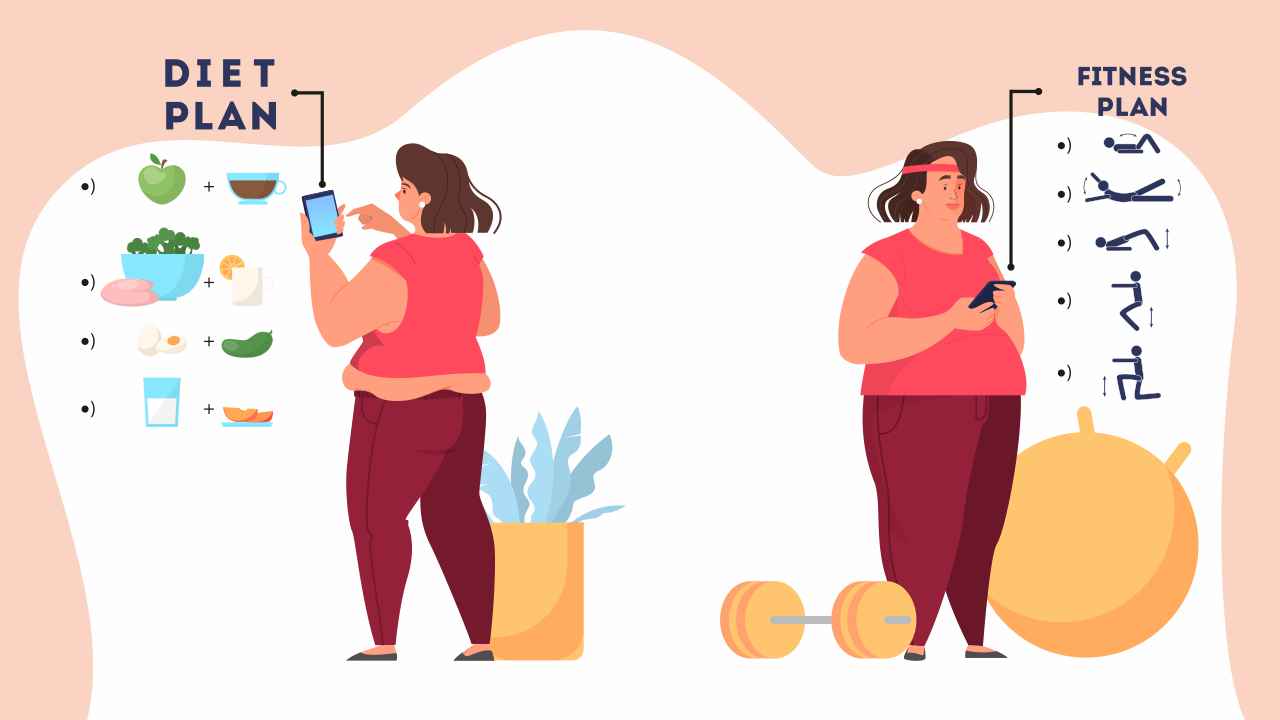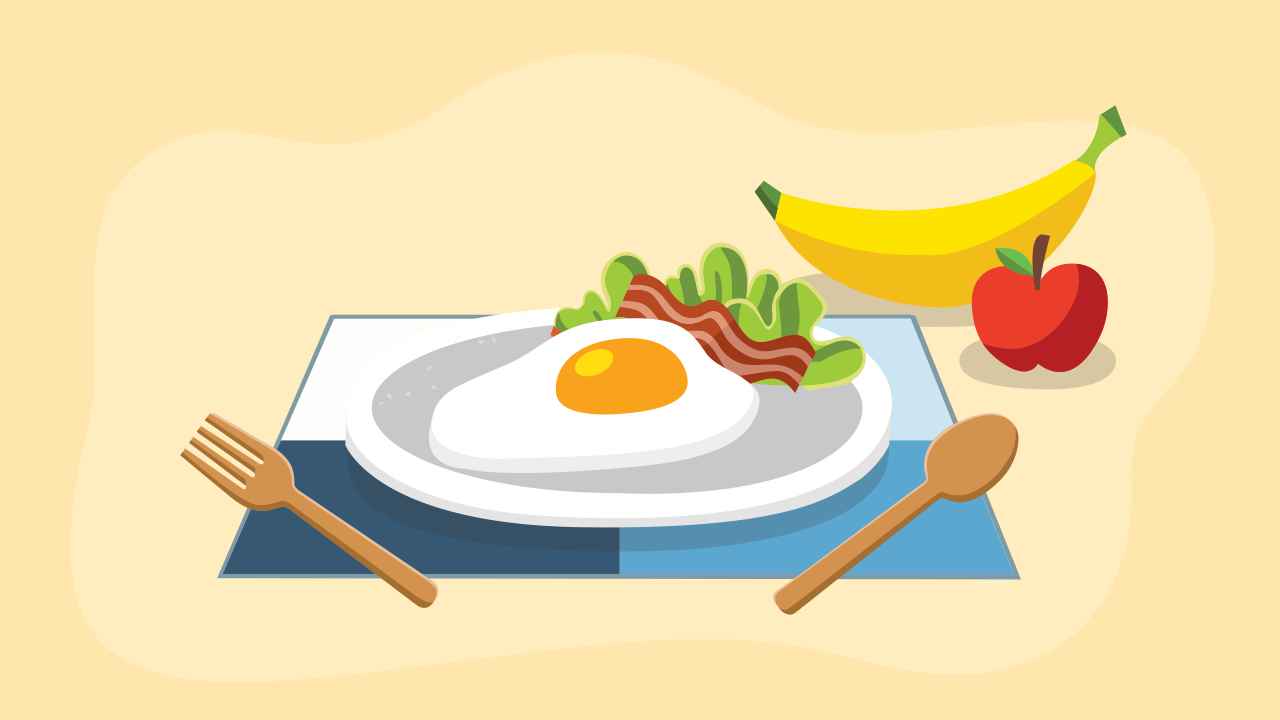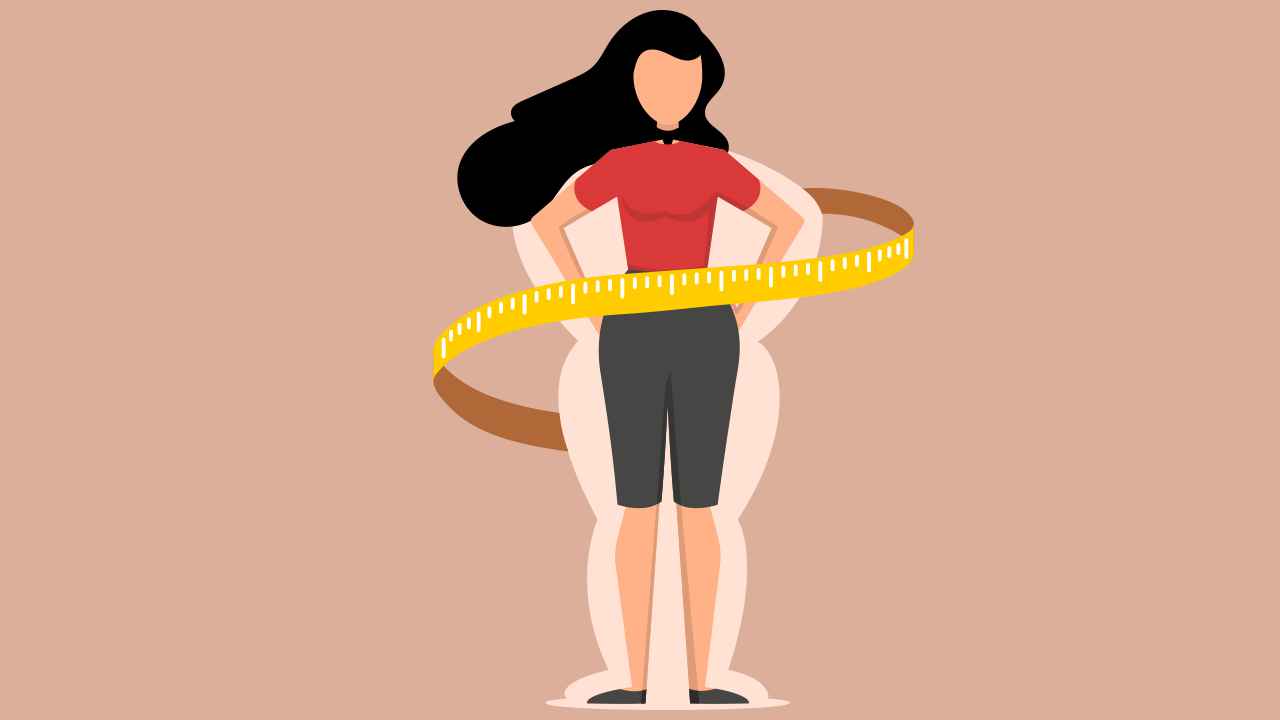
Common Weight Loss Mistakes and How to Avoid Them

Losing weight can often be a confusing and frustrating challenge. There is a never-ending stream of health advice, dieting miracles, and magic superfoods available online and offline, which promise weight loss wonders. Chances are that you have tried many of them and failed to see any progress. So, what went wrong?
Let’s explore a few common weight loss mistakes people make and how best to avoid them.
Common weight loss mistakes
Here are some mistakes that individuals end up making in their quest to lose weight.
1. Calorie deprivation
Weight loss happens when one consumes fewer calories than what one burns. So, people inevitably eat less so as to lose weight. Unfortunately, this is unlikely to be sustainable or healthy in the long term.
It is easy to get caught in this trap, thanks to the body image notions propagated by celebrity culture. The results we see on reality shows for weight loss for instance, are alluring. However, off-camera, once the participants return to a more normal diet and exercise regime, they fail to stick to such a low-calorie diet.
Researchers from the National Institutes of Health (NIH) released a study that followed 14 former Biggest Loser (an American reality show) contestants over six years. The participants had gained back most of the weight they lost on the show, and in some cases, they ended up putting on more weight. Almost all had developed resting metabolic rates that were considerably slower than people of similar size who had not experienced rapid weight loss.
Another consequence of slashing daily calories to below 1,000 for a long period can have some dangerous side effects, such as dehydration, blood sugar irregularities, and cardiovascular disease. Additionally, your valuable muscle tissue may break down for energy. Also, there may be a hindrance to any performance gains that you are looking to make.
If weight loss is the goal, it is necessary to understand that it is a long process, and the results won’t show overnight. So, you need to follow this approach when it comes to daily caloric consumption. Eat the right number of total calories. Ensure that these calories come mostly from nutrient-dense, whole food sources.
2. Fad diets
Thinking there is a quick-fix, magic solution to weight loss sets us up for failure and disappointment. Celery juice, detoxing, keto, or any of the other popular diets are a temporary fix at best. Unless you are willing to make the diet a permanent lifestyle, any weight lost will come back. Removing entire food groups, like carbohydrates, deprives the body of essential nutrients.
Also Read: Are Fad Diets Worth Their Weight?
3. Five-day mindset
Eating well for five days a week from Monday to Friday, and then binging on the weekends can be a recipe for disaster. Restaurant meals and alcohol can add up to thousands of calories. While enjoying some less restrictive meals is a good thing, regularly giving yourself two days of excessive, uncalculated eating can easily undo all the hard work you did during the week.
Other weight loss mistakes
1. Eyeballing it
Our eyes are very unreliable calculators, and our memory is selectively choosy. When trying to add daily calories, it is very easy to underestimate portion sizes and calories consumed. How much is 15g of protein? Does this bowl of rice add up to one cup or more? Did I eat three biscuits or four? All the little bites can add up and push us over our daily limit without us even realizing it.
2. Insufficient protein
Protein foods are more satiating than carbohydrates and fats. You will need anywhere between 1g-1.2g/kg of protein per day. When you are not meeting your protein needs, you are sabotaging your weight loss goals. Aim for 20g-30g protein per main meal and 5g-10g protein for snacks. If you are having trouble meeting your daily goals, a post-workout or pre-bed protein shake may help.
Also Watch: Protein for weight loss
3. TV dinners
Eating and technology should be kept separate. We eat more when we are streaming our favorite web series, browsing social media, or watching TV.
4. ‘Free’ foods
Marketing claims are meant to grab attention and influence purchasing. Anytime you see a label on a packaged food item with claims such as ‘fat-free’, ‘sugar-free’, and ‘gluten-free,’ be mindful. The instinct is to assume these foods are better for us when actually they often are not. When manufacturers remove ingredients from foods, they have to add other things to them to enhance the taste. This can come in the form of artificial sweeteners, salt, chemicals, or additional calories from other macronutrients. We often over-consume these foods as we feel they are more healthy.
5. Overestimating exercise calories
You may take the assistance of a smartwatch or check the exercise machine to know how many calories you are approximately burning. However, the truth is that you burn less calories than what is mentioned in these devices. Studies have shown that on average, athletes overestimate the number of calories they burn by up to 28%. The accuracy of smartwatches also varies in terms of reliability. It is in fact, quite hard to measure calories outside a lab. When you are trying to meet a caloric deficit, even being off by 200-300 calories a day makes a big difference.
Losing weight is not easy, but it is doable when you know what mistakes to avoid. Instead of giving up, focus on sustainable and long-term results. Find a caloric balance, eat a wide variety of foods, and stick with it.
References:
1. There Are No Winners with The Biggest Loser. Outside Online. 2020; published online March 26. https://www.outsideonline.com/health/wellness/the-biggest-loser-reboot/ (accessed Sep 30, 2021).
2. Holt SH, Miller JC, Petocz P, et al. A satiety index of common foods. Eur J Clin Nutr. 1995; 49:675-90.
3. Jäger R., Kerksick C. M., Campbell B. I., et al. International Society of Sports Nutrition Position Stand: protein and exercise. J Int Soc Sports Nutr. 2017; 14.
4. Robinson E, Ayevard P, Daley A, et al. Eating attentively: a systematic review and meta-analysis of the effect of food intake memory and awareness on eating. Am J Clin Nutr. 2013; 97: 728–42.
5. O’Driscoll R, Turicchi J, Beaulieu K, et al. How well do activity monitors estimate energy expenditure? A systematic review and meta-analysis of the validity of current technologies. Br J Sports Med. 2020; 54:332-40.













